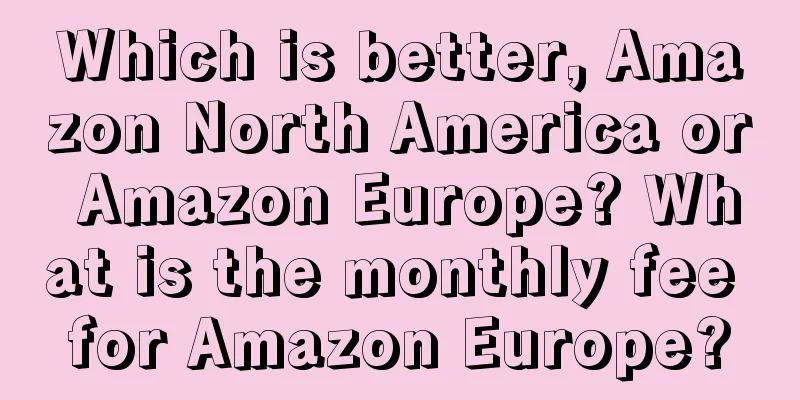"WeChat" merges with "TikTok", the first 1 billion-level traffic dividend is coming in 2023...

China's cross-border e-commerce sellers may once again benefit from Musk's extreme restlessness. Musk, who was born as a "geek", has been at the helm of Twitter since he took over the platform by jokingly hugging a sink. His surprising words and deeds have put this social platform, which was already in the undercurrent of public opinion and financial crisis before the acquisition, at the center of controversy. However, his next move may bring a turning point for Chinese cross-border e-commerce companies. Musk has changed his previous style of drastic reforms and outspokenness and plans to allow brand advertisers to embrace Twitter again: Musk posted a video of himself enjoying the beautiful view at Apple's headquarters on Twitter, with the caption "The conversation went well. We cleared up the misunderstanding." Just the day before, he sent out 8 consecutive tweets to denounce Apple's "monopoly and censorship." A few days later, there was news that major advertising clients including Apple and Amazon had resumed spending on Twitter, and Amazon also planned to invest an additional $100 million in marketing funds on Twitter each year. Later, Musk succinctly expressed in a tweet that he "thanked advertisers for returning," and in another tweet on the same day, he used an emoticon to mock those media that had previously been pessimistic about "Musk's Twitter" - "Twitter is still hot." After nearly two months of turmoil, Twitter seems to have gained a breathing space to "turn the tide". While countless users who "flee Twitter" and niche social platforms that aim to "replace Twitter" are jointly challenging it, Chinese cross-border sellers across the ocean are also watching Twitter's self-adjustment and re-examining its cooperation value - especially when Meta digital marketing is facing the challenges of the post-privacy policy era. 1. Strong signal! Apple and Amazon return to TwitterMusk's acquisition of Twitter was accompanied by many tough measures. Among them, drastic layoffs and new identity verification regulations may be the main factors that caused disastrous short-term consequences - its promise of stability is almost completely untrustworthy to advertisers. In early November, Omnicom, an international marketing group that provides services to companies such as McDonald's and Apple, directly pointed out in a memo to its corporate clients: "There is evidence that our clients' brand safety risks have risen sharply to levels that most people consider unacceptable" and that they should leave Twitter now! Subsequently, a series of brands including Pfizer, Chanel, Dell, Chevrolet, and HP quickly stopped their advertising spending on Twitter. According to an analysis by Media Matters, in just two weeks, "50 of the top 100 advertisers announced or suspected to stop advertising on Twitter." In the third week of November, the company's advertising sales in Europe, the Middle East and Africa fell by more than 50% compared with the second week. For a long time, advertising revenue has been equivalent to Twitter's "lifeline". The company's second quarter financial report showed that advertising sales accounted for 91% of its total revenue, and this revenue showed a shrinking trend in the second quarter. Under this premise, "going against the grain" with advertisers is undoubtedly a fatal blow to the platform. Musk had to "cash out". In November, he sold a total of 19.5 million Tesla shares, worth a total of $3.95 billion, in order to inject liquidity into Twitter. On the other hand, he also began to adjust his plans and actively negotiate with advertisers. In the process, Musk demonstrated his flexible bottom line: even if he was still denouncing "advertisers being held hostage by radicals" the day before, he could suddenly chat and laugh with them the next day without any warning - as long as they could bring advertising revenue to Twitter. The most tense battle is the one between Twitter and Apple. Analysts said that the two sides have reached a certain consensus on the "Apple tax" and content review issues, and Musk may have found an extraordinary way to "bypass Apple's shackles." Musk's high-profile publicity of the matter means that this dramatic development may be a "carefully planned public relations event" by Twitter to convey confidence to advertisers. On the day of the settlement, Twitter struck while the iron was hot and sent an email to advertising agencies, stating that it would provide advertisers with the "largest advertiser incentive program ever": advertisers who spend $500,000 to $1 million will receive an equal amount of bonus; advertisers who spend $350,000 will receive a half-amount bonus; and advertisers who spend $200,000 will receive a quarter-amount bonus . The unprecedented level of incentives confirmed Twitter's determination to save its precarious advertising business. Foreign media reported that Apple will spend $180 million on Twitter, while Amazon also plans to resume advertising at a price of about $100 million per year and "wait for Twitter to make some security adjustments to its advertising platform." The return of the two giants seems to indicate the rejuvenation of Twitter's advertising business. However, according to insiders, many companies are still taking a wait-and-see attitude. Some brands are only willing to run ads during the Super Bowl, and the contracts also include a guarantee that the ads can be terminated at any time. General Motors and other car brands are worried about the information leakage that will be caused by the "talent exchange" between Tesla and Twitter. Despite this, this can still be seen as a turning point for Twitter to ease tensions, and on the other hand, it also paves the way for Musk's long-planned "big transformation." 2. WeChat + TikTok! The killer overseas marketing tool is about to be launchedAs early as April this year, when he reached a purchase agreement with Twitter, Musk publicly expressed his enthusiasm and appreciation for WeChat more than once. In a meeting with Twitter employees in June, Musk directly praised: "In China, people live on WeChat because it is so helpful in daily life," "Let's copy WeChat, how about it?" He sees WeChat as a blueprint for Twitter 2.0, or as he puts it, a ready-made example of "the everything app." Musk named this "new Twitter" that accommodates multiple media forms and has powerful machine algorithms "X", which means that it will integrate all functions and application scenarios and be embedded in life with infinite possibilities: financial payment, news subscription, life payment, document storage, credit card consumption, going to third-party platforms to call a taxi, ordering meals, booking tickets, booking hotels, and other services that have been popular on WeChat will be migrated to Twitter, which is currently just a social platform, in a suitable way. This strategic vision is moving from paper to reality. On November 28, Musk shared a set of PPT pictures, showing his specific actions in the fields of e-commerce services, Internet payments, short videos, and digital currency issuance. The slogan "Advertising is entertainment" indicates that Twitter is trying to innovate the traditional advertising service model and apply more intelligent customized, entertaining and engaging advertising generation mechanisms to the platform. In Musk's PPT, he showed an interactive advertisement similar to the "Buzzfeed Quiz". Some people believe that this model is conducive to "viral transmission" and increasing brand awareness. In terms of online payment, Musk elaborated on TwitterSpaces' long-term vision of introducing payment functions to Twitter, which may include providing high-yield money market accounts, debit cards and peer-to-peer payments. At the same time, Twitter also submitted relevant documents to the US authorities to become a financial services company. In addition, Musk also launched a vote on Twitter on whether to restart Vine, and nearly 70% of people supported the restoration (Vine was a short video platform acquired by Twitter in 2012, which lost in the competition with Instagram and Snapchat and was closed in 2016). Analysts believe that this move is a sign that Twitter wants to compete with TikTok in the short video field. "It is possible that Twitter 2.0, which is undergoing reform, will become the next emerging e-commerce traffic pool," said a senior e-commerce expert. He pointed out that as a platform that used to be "aloof" and focused on content, Twitter is not suitable for sales conversion of ordinary e-commerce, but plays a more auxiliary role in shaping brand image. Musk's idea of trying to build it into the "American WeChat" may greatly change Twitter's content ecology and communication structure. What will change is the basic logic of Twitter marketing. Currently, Twitter's structure is more similar to Weibo - 10% of users contribute 90% of the popular posts, while WeChat, which Musk wants to emulate, is a completely different decentralized social community ecosystem. How will Twitter achieve structural transformation? How will e-commerce marketing adapt to this change? It is still unknown. One possible prospect is that private traffic players who are proficient in WeChat marketing will still have great potential on the new Twitter, and the overseas transplantation of China's experience may set off another wave of early traffic accumulation in the form of "land grabbing". However, Twitter's transformation also carries multiple concerns. The grand ideal of transforming a single social platform into an all-purpose medium is not "original" by Musk, but a "consensus" that has long existed in the US Internet industry: before this, Kik Messenger, Facebook and Snapchat have all tried this kind of comprehensive transformation, and Microsoft is also targeting WeChat and planning to develop a one-stop "super app". But it is doubtful to what extent these attempts can "match WeChat". WeChat's success depends on a series of "right time, right place and right people" in the domestic market, and such success may not find the same conditions overseas. In an era of economic recession, stock competition and increasing uncertainty, it is questionable whether WeChat's "fruits of victory" can be grafted onto the "old vine" of Twitter. 3. 1 billion monthly active users! A traffic depression for cross-border expansion?Users who fled Twitter due to various dissatisfactions eventually moved to other social platforms, including niche emerging platforms and leading players such as Meta and SnapChat. According to investment firm MKM Partners, "Snapchat is a very attractive alternative to Twitter advertisers." The New York Times said that Meta explicitly stated in an internal staff meeting last month: "Twitter is in crisis... Let's eat their bread and butter." However, Twitter is also making every effort to increase the user activity of the platform and the speed of attracting new users. Long before he took over Twitter, Musk had vowed to increase Twitter's global monthly users to more than 1 billion within 12 to 18 months, nearly three times the population of the United States. The pursuit of such a large user base was precisely to lay the foundation for his grand vision of "the everything app." As a top opinion leader with 100 million followers, Musk not only interacts with his fans on Twitter every day, but also unbans more than 12,000 controversial and topical accounts. Although this unconventional approach has brought about strange side effects, the number of new users on Twitter has indeed hit record highs since he took over. According to public data, Twitter's profit-converting daily active users (mDAU) have increased by more than 20%, an increase of 15 million, a year-on-year increase of 66%. In mid-November, Twitter added an average of 2 million new users per day, and the active time of users also reached a historical peak. Now, the return of Apple and Amazon has undoubtedly boosted Twitter's morale. Some cross-border e-commerce companies that have been caught in the dilemma of traffic depletion and ineffective digital marketing have also begun to re-examine Twitter - with the trend of "Twilight of the Gods" among American Internet giants, maybe it will fight back? After all, Musk is not only good at making cakes, but also often sees through the essence of the problem. "In 2015, Twitter tried to add e-commerce shopping functions to the platform, allowing some users to display products on their Twitter profiles or purchase goods directly on the platform." The head of social media marketing for a cross-border enterprise told Yibang Power, but to date, Twitter has not been well regarded by cross-border sellers whose goal is to "bring goods." He pointed out that Twitter is not as well accepted by domestic businesses as Facebook, mainly because the public perceives it more as a "news media" - that is, it is suitable for brand advertising, which is something that overseas companies that started out as cross-border e-commerce companies are not good at. "Perhaps with the current trend of branding upgrades in cross-border e-commerce, Twitter will be able to play its role again," said an independent website seller. Author: Wang Yu WeChat public account: Yibang Power |
<<: The secret of long-term brand sales
>>: "New Chinese Products" Overseas Gold Rush: Each Shows Its Skills
Recommend
How to understand the meaning of data? (Popular version)
This article introduces the four stages of data in...
Which countries are included in Amazon's European and American sites? How to operate Amazon well?
Amazon is one of the world's largest online re...
What should I do if I can’t get through to Amazon’s customer service? How can I handle Amazon’s after-sales issues?
Amazon is an e-commerce platform covering the whol...
How much can Wish earn in a month? What is the Wish platform?
Our domestic e-commerce industry actually introduc...
How much does it cost to do cross-border e-commerce on Amazon? Cost details
Amazon is the world's largest cross-border e-c...
Charlie Munger: The 30 most important thinking models, thought-provoking, recommended for collection!
The author of this article has selected 30 of Char...
How to join the cross-border e-commerce shein? What are the requirements for joining?
As a well-known cross-border e-commerce platform, ...
Does Amazon customer service call customers? Is there online customer service?
Amazon not only has a large market share, but also...
In the era of short videos, how many opportunities does online literature have?
I wonder if you have come across classic passages ...
How to remove promotional products from Shopee? How to check the listing status?
For Shopee merchants, they must pay attention to t...
The Father's Day copy you want is here!
The author of this article has prepared a special ...
What is the difference between opening a store on Shopee for an individual and a company? How to open a store on Shopee?
Shopee is a well-known cross-border e-commerce pla...
No more "improvement", this is the efficient way to empower sales with data
Data is an important basis for corporate decision-...
JD PLUS membership exceeds 34 million! Why are all e-commerce platforms offering "paid membership"?
Since JD.com launched PLUS membership, the number ...
Can I reopen an Amazon account if I cancel it? Which accounts can be canceled?
If you don't use your Amazon account anymore, ...









